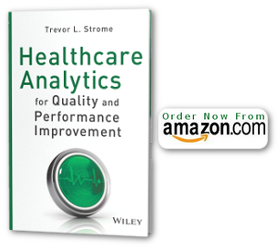Healthcare analytics professionals and data scientists access and use healthcare data on a near-constant basis. Whether it is for designing dashboards or building predictive models, the use of sensitive information is a necessity in efforts to leverage analytics to improve healthcare.
Also essential, however, is keeping the private health information that we access and use secure and private. That is why it is important for analysts and data scientists working in healthcare to understand the rules and regulations around security and privacy of health information. HIPAA, the Health Insurance Portability and Accountability Act, is something that most people in healthcare have heard something about, yet relatively few truly understand the details, implications and impact of this important legislation.
In my article on Search Health IT, I outline the key features of HIPAA, especially as it relates to the use of healthcare data by analysts and data scientists.
Essentially, HIPAA provides healthcare professionals (and anybody who needs to work with protected health information) with guidelines around how to protect it. Worryingly, there are still many healthcare administrators, clinicians and analysts who consider information security and protection of privacy to be in the realm of the IT professionals. This common but too-narrow view belies the many ways in which protected health information can be exposed, and the many necessary precautions required to counter the threat of data breaches.
I invite you to read the complete article on SearchHealthIT.com to learn more about how this important legislation affects you, and how you use health information.

{ 0 comments… add one now }